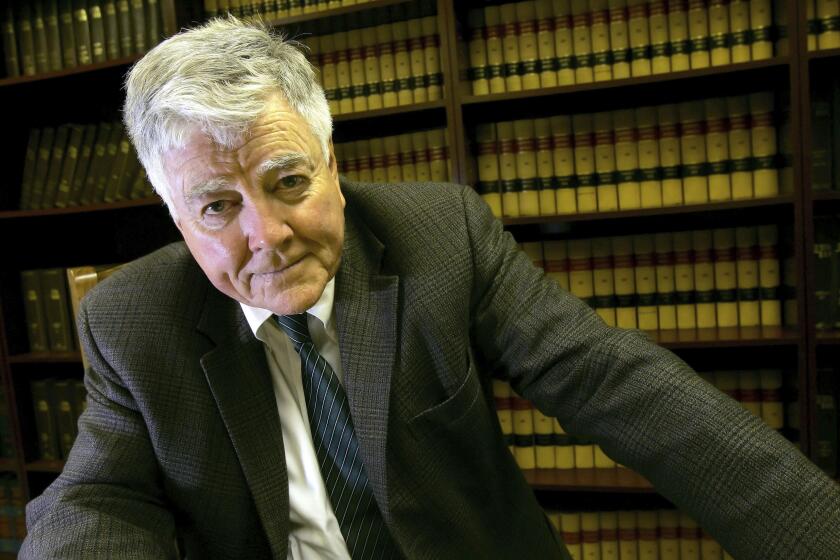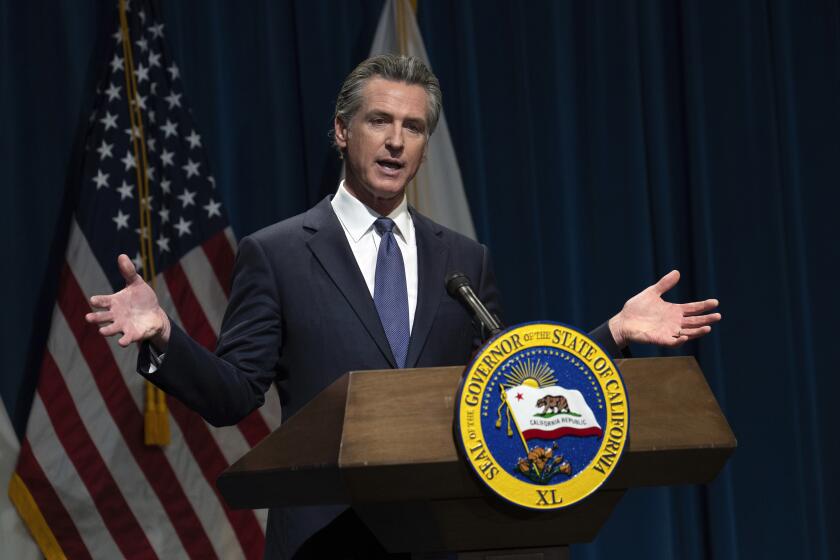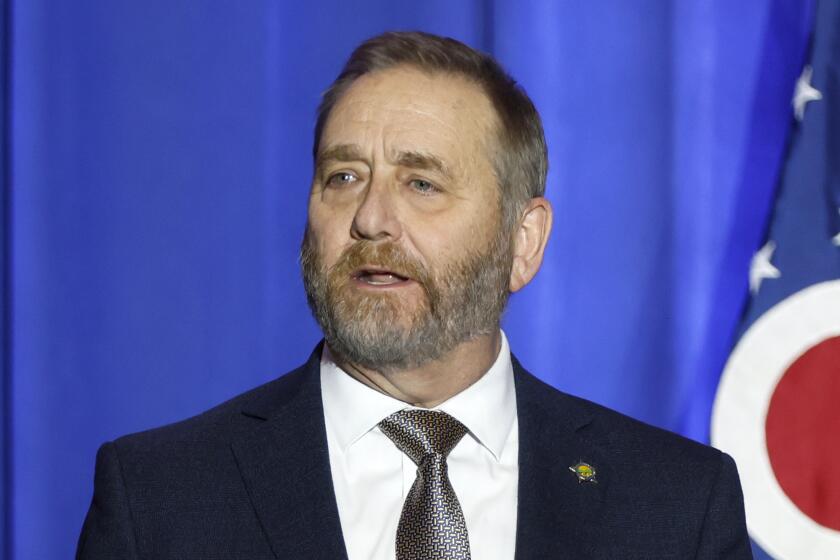Illinois Court Orders Special Election : Chicago Braces for Mayoral Contest
Thank goodness the election is over. Now voters in this city that thrives on partisan intrigue and clout can give their undivided attention to the election--the race for mayor.
Yes, believe it or not, mayor. It seems like barely yesterday that the nation’s third-largest city was embroiled in a raucous, bare-knuckled, racially charged war for control of City Hall. Now, brace for yet another round.
The Illinois Supreme Court on Monday set the stage for the latest battle, the third in two years, when it ordered a special election April 4 to fill the unexpired term of the late Mayor Harold Washington, the city’s first black mayor. A primary is scheduled for Feb. 28.
But the ruling had been anticipated by potential candidates, some of whom have been prepping their campaigns ever since Acting Mayor Eugene Sawyer won a fierce struggle in the City Council last December to become Washington’s interim successor.
‘We’re Ready for It’
“We’re off and running,” said Alderman Danny Davis, who threw his hat in the mayoral ring several weeks ago. “It’s exactly what we’ve been planning for, what we had been hoping for, and we’re ready for it.”
Long before Monday’s ruling, the field of announced or anticipated candidates had grown to include at least seven prominent Democrats, whose party has dominated politics here for more than half a century. Chief among the expected contenders are Sawyer; his main rival for black support, Alderman Timothy Evans, and Cook County State’s Atty. Richard M. Daley.
The political jockeying clearly overshadowed and may have doomed the local campaign of Democratic presidential contender Michael S. Dukakis, as mayoral hopefuls, reluctant to squander scarce resources, provided only lackluster support to the national ticket. Meanwhile, Dukakis rallies were often marred by open feuding between rival mayoral camps.
Race Sure to Be Key Issue
As in recent contests, the key issue is sure to be race, with blacks trying to keep the reins of city government and whites struggling to regain the control they lost in 1983 with Washington’s upset victory in the Democratic primary over Daley and then-Mayor Jane M. Byrne, who split the white vote. White and black voter registration in the city are about even.
Though whites have been more circumspect in racial appeals of late, black candidates have felt less constrained to be subtle. Several black political leaders, including the Rev. Jesse Jackson, have urged a summit to pick a unity candidate and avoid splitting the black vote.
Once dominated with an iron fist by Daley’s father, the late Mayor Richard J. Daley, Chicago government has been in a seemingly endless turmoil ever since Washington came to power. Obstruction by white opponents in the City Council marred Washington’s first term, and he was only able to cement his political grasp with a convincing reelection bid last year. But, on the eve of last Thanksgiving, Washington suffered a fatal heart attack. Black and white forces on the council immediately began plotting to fill the void.
The battle reached its climax in a tumultuous all-night session during which thousands of demonstrators, most of them black, surrounded City Hall while council members shouted insults at each other and even stood on their desks to get attention.
Most of the crowd favored Evans, who claimed Washington’s progressive political legacy. But, in the end, it was Sawyer, another council member, who was chosen to take Washington’s place. Although black, Sawyer had amassed considerable white support in the council, thanks to his ties to the old white-dominated Democratic political machine.
At the time, legal experts were divided over whether Sawyer was to be considered an interim choice to be replaced at a special election or whether he should be allowed to complete Washington’s full four-year term in office. Monday’s ruling is clearly a blow to the 54-year-old Sawyer, who was hoping that a 1991 election date would give him time to establish a political base and record.
Par for the Course
His year in office has been decidely unremarkable, marred by a series of minor scandals as well as charges of political cronyism and waste--pretty much par for the course in political circles here. There have also been a series of bizarre racial incidents, including one that inflamed black-Jewish tensions when it was learned that a key Sawyer aide had delivered anti-Semitic lectures. And the City Council recently passed a resolution urging its own members to refrain from inquiring about the religious and ethnic backgrounds of witnesses at committee meetings.
More to Read
Start your day right
Sign up for Essential California for news, features and recommendations from the L.A. Times and beyond in your inbox six days a week.
You may occasionally receive promotional content from the Los Angeles Times.






